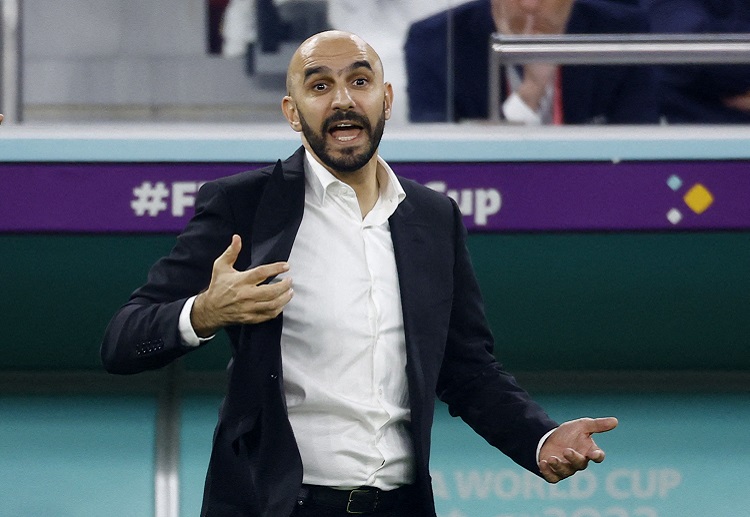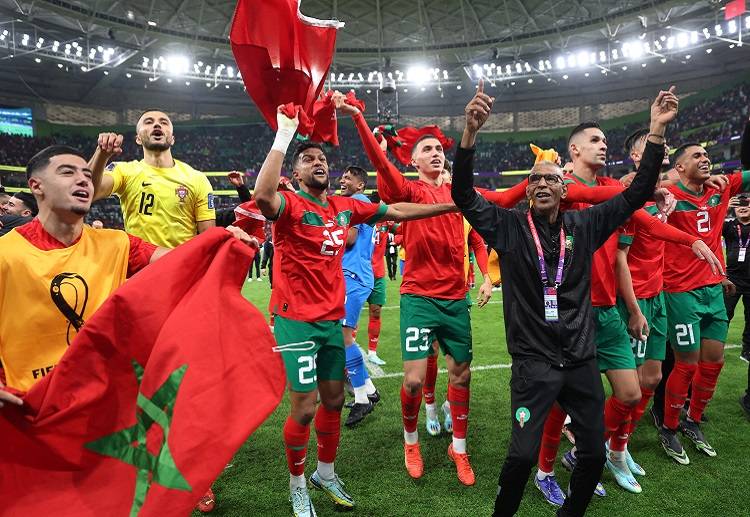When asked to name my top African players at World Cup 2022, there literally was only one place to look.
Sure, the Africa nations have created a fair few World Cup 2022 highlights between them.
There was Tunisia’s 1-0 victory against the world champions, albeit a much-changed Les Bleus who had already qualified for the last 16; there was Cameroon’s fightback against Serbia when two goals in three minutes earned a Group G point which was duly followed four days later by a last-gasp Vincent Aboubakar goal against Brazil.
The South Americans were also much-changed having qualified with a match to spare but that should not detract from the fact Aboubakar notched two goals and an assist while featuring for an average of 47 minutes – by far Cameroon’s most effective player as they crashed out of the competition.
However, despite all the cases for the above, how can I look beyond Morocco whose victory at the Al Thumama Stadium on Saturday didn’t just rewrite the history books but turned the world football axis well and truly on its head.
Before Qatar, only Cameroon (1990), Senegal (2002) and Ghana (2010) had reached the last eight at the tournament. Now the Atlas Lions have become the first African team to reach the semi-finals of a World Cup and there are stars whichever way you turn in the whole squad.
Whatever happens, the story of the Moroccan class of 2022 will live on in football folklore and, while this SBOTOP observer could put forward a legitimate case for many more – not least Sofiane Boufal and Azzedine Ounahi who are in the middle of a relegation battle with their Ligue 1 club side, Angers – these are the players I believe have been the most influential in a tournament which has defied the World Cup 2022 betting odds.
Yassine Bounou
Put simply, Bounou has been immense in goal.
In the quarter-final victory against Portugal he earned his 50th cap for his country and was awarded the man of the match.
Three of the back four that finished that match were deputies which showed just how important Bounou’s contribution was.
There’s nothing fortunate about defeating Belgium, Spain and Portugal without conceding a goal – Sevilla’s Bono saw to that in normal play and a penalty shoot-out against Spain.
In fact, the only time they have conceded so far was a freak own goal against Canada.




Youssef En-Nesyri
His team-mate for club and country was actually the last player to be called up for the 2018 World Cup.
Then, En-Nesyri scored a memorable goal that almost cost Spain a place in the last 16, jumping and heading over Sergio Ramos and Gerard Piqué.
Despite being the joint Moroccan top scorer in the Champions League and the only international to score in four consecutive major competitions, En-Nesyri is an easy target for critics due to his no-frills style and patchy form.
He deserves much better based on his showings in Qatar.
Sofyan Amrabat
The Fiorentina midfielder is the key man for many and the 26-year-old has certainly been a rock of dependency in front of his team’s defence, breaking up play and linking brilliantly with the team’s more creative players.
In the last 16, Amrabat was the dominant figure against Spain, keeping close control of the ball in dangerous positions and making some crucial tackles.
If Morocco can keep on earning clean sheets they won’t be beaten. It’s a big ‘if’ of course, but Amrabat is a man who knows how to protect a defence.
In eight and a half hours of football, no opposition player has scored against them.
Hakim Ziyech
When many plaudits were raving about the de Ligt and de Jong’s of this world when Ajax came within a whisker of reaching the Champions League Final, a lesser documented player was catching my eye.
He has proved been Morocco’s best attacking outlet in this tournament, registering a goal and an assist in the opening three group stages.
In fine form, no wonder Chelsea paid more than £30 million to secure his services the following year.
Achraf Hakimi
It’s fair to say he has probably been challenged more defensively in Qatar than he’s used to at club level with Paris Saint Germain but Hakimi has risen to the occasion as part of a defence that has conceded just one goal in five matches.
A real talent and, presumably, an inspiration to so many in his homeland, the 24-year-old is about to earn his 60th cap.
This has all happened under the helm of Walid Regragui.

In 2004 the Atlas Lions reached the Africa Cup of Nations final but lost against the hosts Tunisia.
One of the players that day was Regragui. At the time he made the pledge to one day become the country’s national team manager and take them to the World Cup.
Although he only took charge in August, he says self-belief has been an important factor in their run to the last four, having emerged from a group which contained Belgium, ranked second in the world, and 2018 runners-up Croatia before seeing off 2010 World Cup winners Spain and 2016 European champions Portugal.
Roared on by thousands of Arabs from across the world, Regragui rightly believes his team has become the neutral’s favourite.
Eight of the players who finished the quarter-final were those who grew up in Morocco and learned their football in the country’s academies and clubs.
Veron Mosengo-Omba, the general secretary of Confederation of African Football (Caf), believes more investment and resources must now be made available for other countries to match the achievement by the North Africans.
With it, we could just be witnessing the start of what the Moroccan class of 2022 has provided.
●●●
CHECK OUT OUR BLOG FOR MORE FOOTBALL STORIES & ODDS
Stay updated with everything sports and betting.












